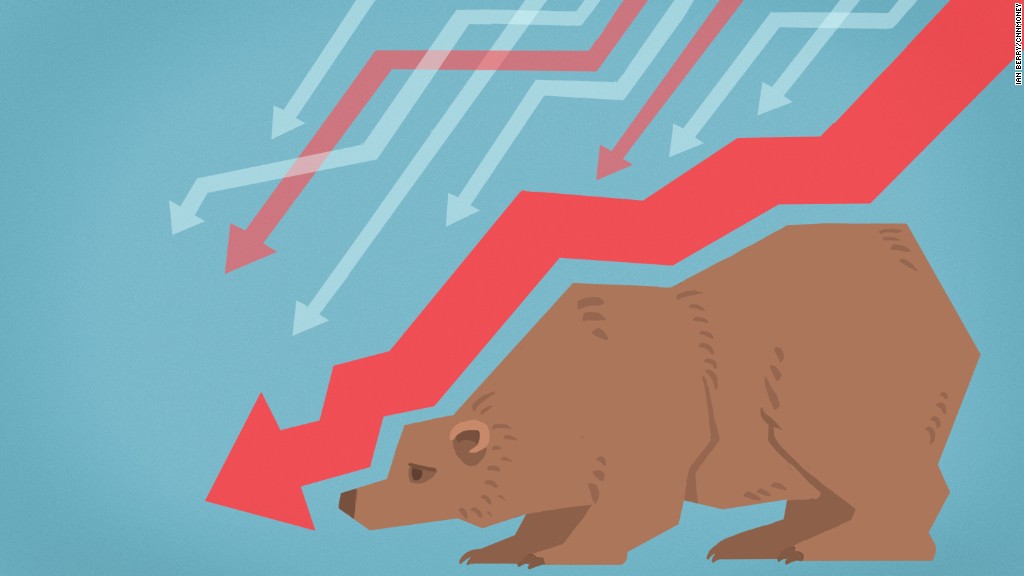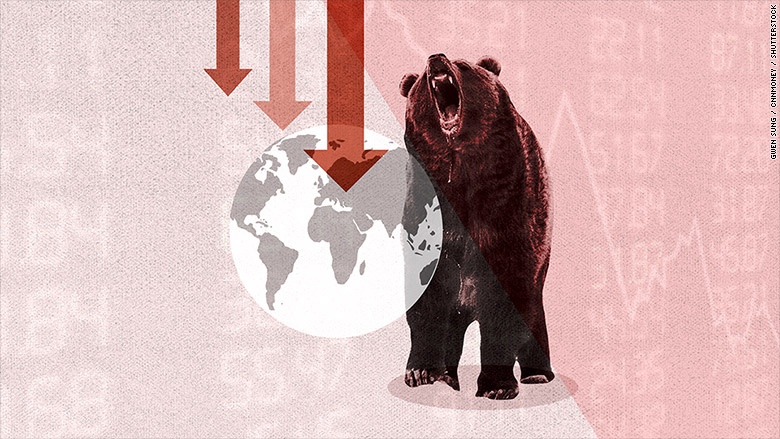
Fear has taken over stock markets around the world.
A broad benchmark of global stocks officially slipped into a bear market this week by closing more than 20% below its recent high.
The steep decline for the MSCI All-Country World Index reflects the sense of dread that has crippled risky assets in recent weeks. Investors are nervous about cheap oil prices, the threat of a global recession and the ability of big banks to withstand those powerful forces.
"Events of the past six weeks have clearly been a shock to investors," Barclays wrote in a research report on Friday.
"The sheer magnitude of the sell-off has raised the risk that financial market volatility could feed back into the real economy and become a self-fulfilling prophecy," the bank wrote.
Many individual stock markets are already in a bear market, including Brazil, Canada, China, France, Germany and Japan.
So far, the U.S. has avoided bear status. However, both the Dow and the S&P 500 are down about 13% from their recent highs and the Nasdaq is off 17%.
Like those better-known indexes, the MSCI All-Country World Index includes big American stocks like Apple (AAPL) and ExxonMobil (XOM). But it also features hundreds of stocks based in developed markets like Germany and Australia as well as ones in emerging markets.

Related: Market mayhem: Central banks may be fueling the fire
China's economic slowdown has slowed demand for the raw materials that many emerging markets like Brazil, Russia and South Africa rely on to fuel their economies. At the top of that list is crude oil, which this week plunged to its lowest price in nearly 13 years.
"The meltdown of crude and slowing growth in China have been real headwinds for emerging markets," said Peter Kenny, an independent market strategist and founder of Kenny's Commentary.
Stocks in more mature developed markets have also been rattled by the oil price crash as well as recent worries about the health of big banks, especially ones in Europe.
Related: Why the Nasdaq is on the verge of a bear market
Central bankers don't appear to be helping either. The willingness of major central banks to embrace unorthodox policies is creating uncertainty about the global outlook.
So all of this begs the question: Will the U.S. fall into a bear market too?
Experts remain split on that issue, though there was reason for optimism on Friday as the Dow rallied more than 200 points after a rough week.
"Just because the global market is in a bear market doesn't mean we're going there too. It just means the sledding is going to be tougher," said Kenny.


